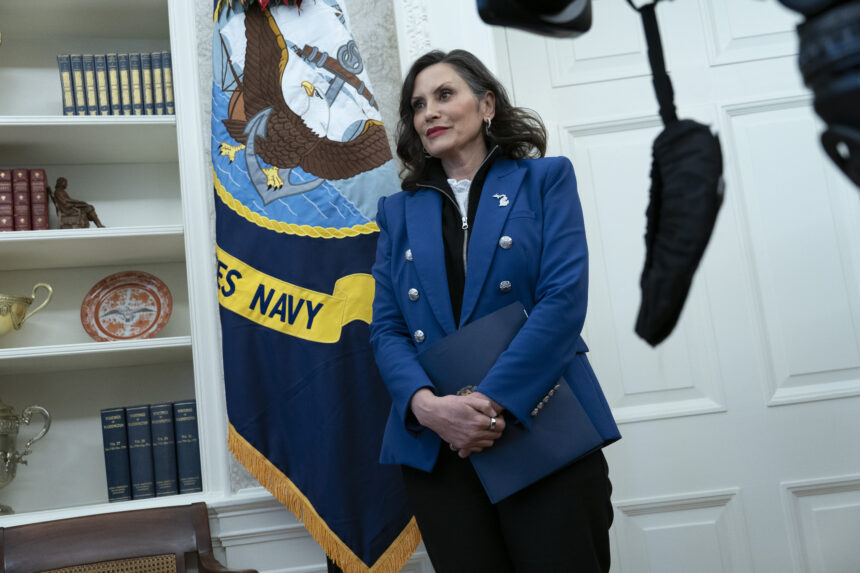President Donald Trump and Michigan Governor Gretchen Whitmer came together in a White House meeting on Wednesday, showcasing a rare moment of bipartisan cooperation. Whitmer, who has been touted as a potential Democratic candidate for the 2028 presidential race, discussed a range of issues with Trump, including the ongoing ice storm in northern Michigan, investments in the Selfridge Air National Guard Base, invasive fish in the Great Lakes, and the hot-button topic of tariffs.
During the meeting, Trump lauded Whitmer’s leadership skills and even invited her to join him in the Oval Office while he signed several executive orders. The president praised Whitmer, calling her a “very good person” who has done an excellent job leading the state of Michigan.
Whitmer’s spokesperson expressed surprise at her unexpected inclusion in the press conference without prior notice but clarified that her presence did not signify an endorsement of the controversial actions taken by Trump during the event.
One of the key points of discussion during the meeting was the issue of tariffs. While other Democratic governors have been vocal in their opposition to tariffs, Whitmer took a different approach, emphasizing the importance of manufacturing jobs in Michigan. She acknowledged the need for increased domestic production but cautioned against using tariffs indiscriminately without a clear objective.
Despite past tensions between Trump and Whitmer, particularly regarding the COVID-19 pandemic response, the governor signaled a willingness to collaborate with the president in his second term. Whitmer emphasized the importance of being at the table to advocate for Michigan’s interests, suggesting a more cooperative approach moving forward.
The meeting between Trump and Whitmer highlighted a departure from the divisive politics that have characterized much of their relationship in the past. As Whitmer continues to gain national attention as a potential presidential candidate, her ability to work across party lines and find common ground with political opponents may prove to be a valuable asset in the future.








